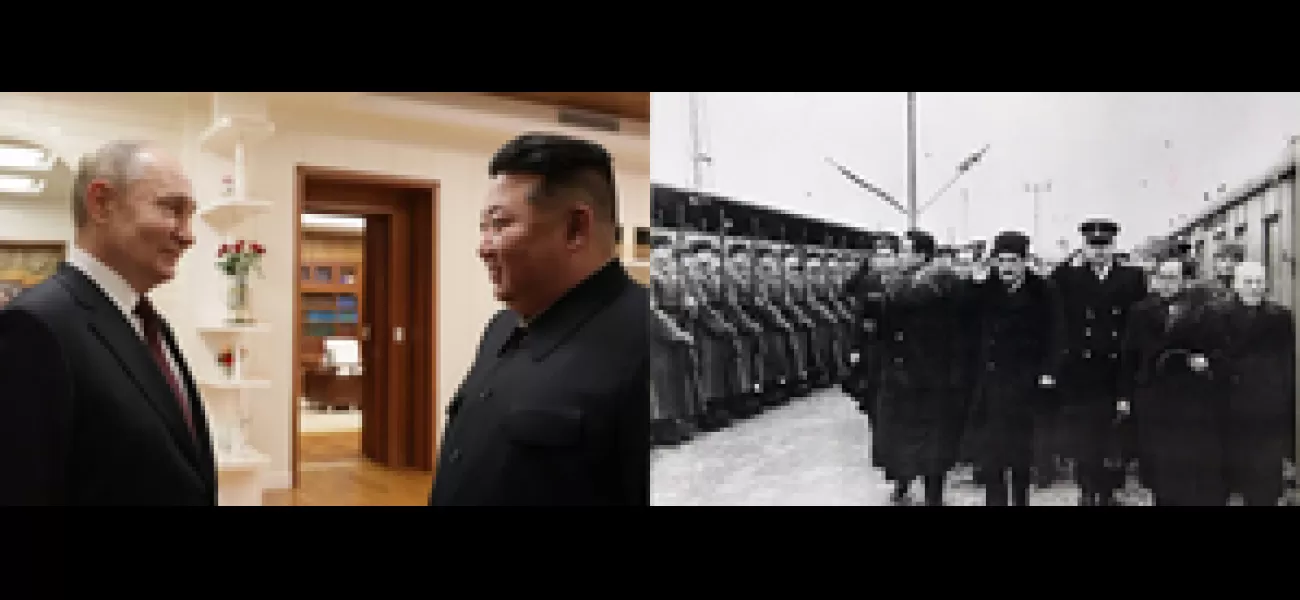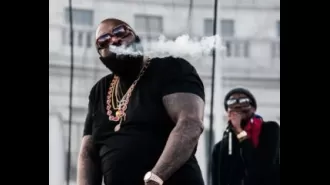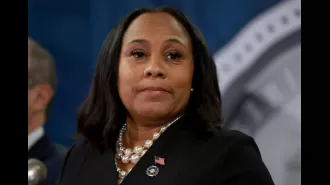Putin and Kim strengthen historical ties between Russia and North Korea, which have existed since the time of Stalin.
Russian President Putin returned to North Korea, meeting with leader Kim Jong-un to discuss economic, security, and global matters and signed a Treaty.
June 24th 2024.

Last week, Russian President Vladimir Putin made a return visit to North Korea, almost 25 years after his first visit as the newly-elected leader. During this visit, he met with North Korean leader Kim Jong-un, the son of Kim Jong-il whom Putin had met with in 2000. This meeting was focused on discussions about economic, security, and global issues, resulting in the signing of a Treaty on Comprehensive Strategic Partnership.
This treaty has been hailed as a significant step towards building stronger bilateral relations between the two countries. It encompasses various spheres such as cultural and tourist ties, trade, economic relations, and security. Interestingly, it also includes a commitment from both leaders to support each other in the event of any foreign aggression. This has caused a stir in the region, especially among neighboring countries like South Korea and Japan. It has also raised concerns in the United States, particularly after Putin's warning that Russia could potentially arm North Korea, similar to how Western nations have been supplying weapons to Ukraine.
But how should we interpret this development, which has caused such a buzz in the international community? Firstly, it is essential to note that this is not the first meeting between Putin and Kim Jong-un. Last year, in September, the North Korean leader visited Russia's Far East, making it his first trip outside his country since the COVID-19 outbreak. During this visit, he was hosted by President Putin, who traveled to the eastern region to meet him.
While some may see this as a mere coincidence of two isolated and heavily sanctioned countries coming together for mutual support, it is crucial to consider the history and geopolitics involved. Just like Russia, North Korea also has its fair share of allies, with China being its most significant supporter. Despite agreeing to sanction North Korea for its nuclear weapons program and being hesitant to support any reckless actions, both Russia and China acknowledge the country's role in keeping the US, South Korea, and Japan on edge.
Moreover, the Soviet Union, Russia's predecessor, played a significant role in the creation and protection of North Korea. They even handpicked its first leader, and his family remains in power to this day. Kim Il-Sung, the grandfather of the current leader, was chosen by Stalin to become North Korea's leader after the Japanese were expelled from the country at the end of World War II. His son and successor, Kim Jong-Il, whom Putin met in 2000, was born in Soviet Russia in 1941 or 1942.
Kim Il-Sung had fled to Manchuria with his family when Japan occupied and colonized the Korean peninsula in 1910. He had studied in China and joined the Chinese Communist Party, actively fighting against the Japanese invasion of Manchuria in the 1930s. When the tide turned against them, he and his remaining guerrilla fighters crossed the Amur River into Soviet Russia in 1940, where they became part of the Red Army for the duration of World War II.
In August 1945, the Soviet Union declared war on Japan, and by the time Japan surrendered, they had reached Pyongyang. While North Korean accounts credit Kim Il-Sung with leading the liberation, he and 60 members of his group only arrived in Wonsan port on a Soviet ship in September 1945, still wearing their Red Army uniforms. As Korea was divided at the 38th Parallel for occupation purposes, Stalin needed a local leader to govern the Soviet part. Kim Il-Sung was chosen for his Russian proficiency and lack of contact with the "nationalistic" Korean communists, whom Stalin distrusted.
However, on the flip side, since Kim Il-Sung had spent most of his life outside his homeland, his Korean language skills were rusty, and the Soviets had to help him brush up on his mother tongue before he could address his people in October 1945. In September 1948, the Democratic People's Republic of Korea was established, with Kim Il-Sung as its leader. He would go on to outlive the Soviet Union itself.
Soviet-North Korean relationships were not always smooth. The invasion of South Korea was Kim Il-Sung's idea, and the Soviets only agreed after they acquired an atomic bomb of their own, and China's Mao Zedong promised to support the attack. Kim Il-Sung did not become a Maoist, but he was not pleased with Nikita Khrushchev's de-Stalinization either. Relations improved under Leonid Brezhnev, and North Korea received substantial Soviet aid in the form of "loans." However, with the dissolution of the Soviet Union, this aid stopped, and North Korea experienced a severe famine in the early 1990s.
Under President Putin's leadership, Russia and North Korea have resumed their good relations, which now seem to be on the rise, much to the dismay of the West.
This treaty has been hailed as a significant step towards building stronger bilateral relations between the two countries. It encompasses various spheres such as cultural and tourist ties, trade, economic relations, and security. Interestingly, it also includes a commitment from both leaders to support each other in the event of any foreign aggression. This has caused a stir in the region, especially among neighboring countries like South Korea and Japan. It has also raised concerns in the United States, particularly after Putin's warning that Russia could potentially arm North Korea, similar to how Western nations have been supplying weapons to Ukraine.
But how should we interpret this development, which has caused such a buzz in the international community? Firstly, it is essential to note that this is not the first meeting between Putin and Kim Jong-un. Last year, in September, the North Korean leader visited Russia's Far East, making it his first trip outside his country since the COVID-19 outbreak. During this visit, he was hosted by President Putin, who traveled to the eastern region to meet him.
While some may see this as a mere coincidence of two isolated and heavily sanctioned countries coming together for mutual support, it is crucial to consider the history and geopolitics involved. Just like Russia, North Korea also has its fair share of allies, with China being its most significant supporter. Despite agreeing to sanction North Korea for its nuclear weapons program and being hesitant to support any reckless actions, both Russia and China acknowledge the country's role in keeping the US, South Korea, and Japan on edge.
Moreover, the Soviet Union, Russia's predecessor, played a significant role in the creation and protection of North Korea. They even handpicked its first leader, and his family remains in power to this day. Kim Il-Sung, the grandfather of the current leader, was chosen by Stalin to become North Korea's leader after the Japanese were expelled from the country at the end of World War II. His son and successor, Kim Jong-Il, whom Putin met in 2000, was born in Soviet Russia in 1941 or 1942.
Kim Il-Sung had fled to Manchuria with his family when Japan occupied and colonized the Korean peninsula in 1910. He had studied in China and joined the Chinese Communist Party, actively fighting against the Japanese invasion of Manchuria in the 1930s. When the tide turned against them, he and his remaining guerrilla fighters crossed the Amur River into Soviet Russia in 1940, where they became part of the Red Army for the duration of World War II.
In August 1945, the Soviet Union declared war on Japan, and by the time Japan surrendered, they had reached Pyongyang. While North Korean accounts credit Kim Il-Sung with leading the liberation, he and 60 members of his group only arrived in Wonsan port on a Soviet ship in September 1945, still wearing their Red Army uniforms. As Korea was divided at the 38th Parallel for occupation purposes, Stalin needed a local leader to govern the Soviet part. Kim Il-Sung was chosen for his Russian proficiency and lack of contact with the "nationalistic" Korean communists, whom Stalin distrusted.
However, on the flip side, since Kim Il-Sung had spent most of his life outside his homeland, his Korean language skills were rusty, and the Soviets had to help him brush up on his mother tongue before he could address his people in October 1945. In September 1948, the Democratic People's Republic of Korea was established, with Kim Il-Sung as its leader. He would go on to outlive the Soviet Union itself.
Soviet-North Korean relationships were not always smooth. The invasion of South Korea was Kim Il-Sung's idea, and the Soviets only agreed after they acquired an atomic bomb of their own, and China's Mao Zedong promised to support the attack. Kim Il-Sung did not become a Maoist, but he was not pleased with Nikita Khrushchev's de-Stalinization either. Relations improved under Leonid Brezhnev, and North Korea received substantial Soviet aid in the form of "loans." However, with the dissolution of the Soviet Union, this aid stopped, and North Korea experienced a severe famine in the early 1990s.
Under President Putin's leadership, Russia and North Korea have resumed their good relations, which now seem to be on the rise, much to the dismay of the West.
[This article has been trending online recently and has been generated with AI. Your feed is customized.]
[Generative AI is experimental.]
0
0
Submit Comment





